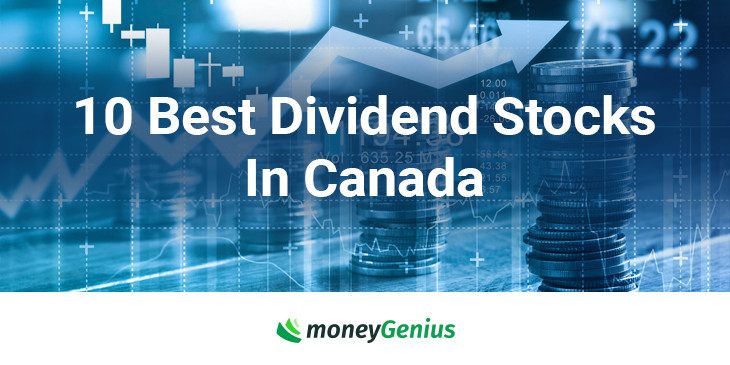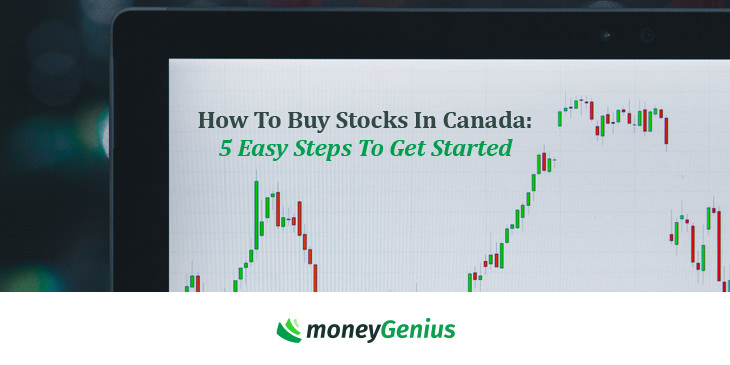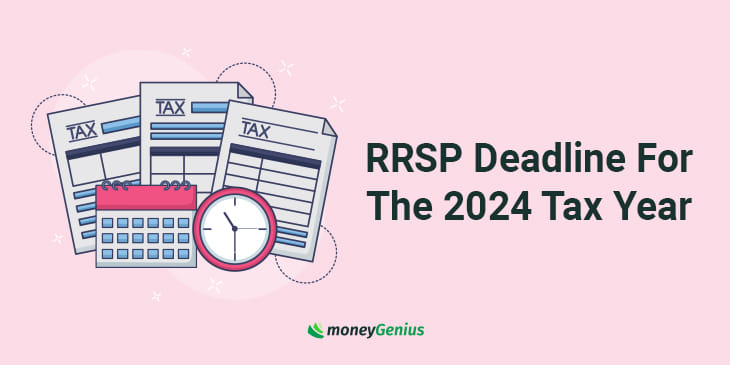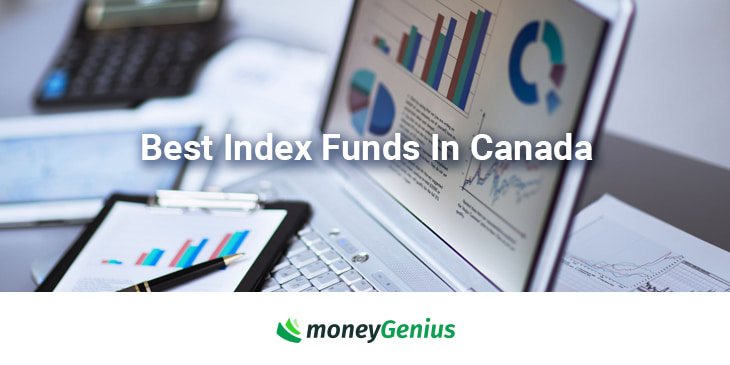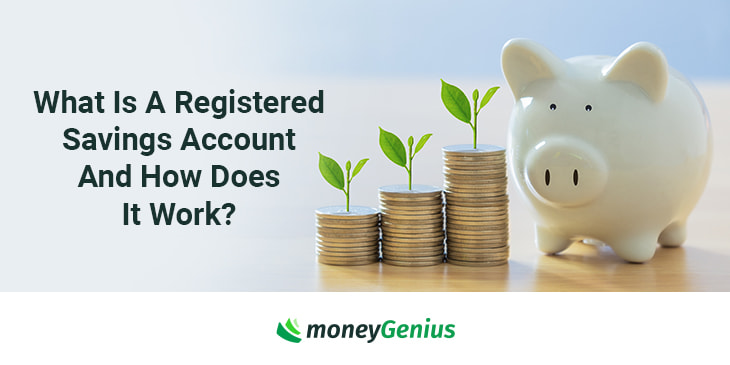An important part of saving for your future involves investing. It can be risky, but you won't earn much just leaving your money in a savings account either – especially if it's with a big bank.
There are plenty of options when it comes to investing in Canada. Between robo advisors, online brokers, and personal investors, you've got options for where and how you can grow your money.
How to invest in Canada
Financially speaking, investing is when you spend money with the goal of growing the value of the funds used. You have many options when it comes to investing in Canada, but the most common options are through financial advisors, robo advisors, and DIY investments.
The most popular investment types include buying stocks, putting money into a portfolio, and depositing money into a high interest savings account.
The pros and cons of investing
The biggest benefit of investing is that you have the potential to make a lot of money. However, a huge downside is the significant risk that you'll lose money you put in.
No matter how you look at it, there's risk involved. It's important to only invest the money you're comfortable with losing completely. You don't need to go into investing expecting a loss, but it's important that you know you'd be able to survive without that money.
But with more risk, comes more reward.
Investing is a major way to build up your retirement fund so you can have a comfortable future when you're done working. Some people even make a living off investing, so there's a very profitable potential to be had.
How to get started investing
Investing can be extremely overwhelming, but it helps to take a look at the major ways people invest:
- Financial advisor/ personal investor: You pay and meet with a real person who invests your money for you.
- Robo advisor: An algorithm-based investment portfolio (usually made up of ETFs) that invests your money on the stock market for you.
- Online broker: A platform for buying and selling stocks and other investment vehicles yourself.
Understanding GIC rates in Canada
If you're not interested in dealing with risk, a Guaranteed Investment Certificate (GIC) is a low-risk option – albeit also fairly low reward.
You begin with buying a GIC with a certain term and associated interest rate. For example, you could get a 1-year GIC for 2.75% interest. This rate is guaranteed over the course of that term, so you know exactly how much you'll get back once the term is up.
When the term ends and your GIC reaches maturity, you'll be paid out your principal PLUS the guaranteed interest that you earned. You can then reinvest that money or pocket it.
The pros and cons of GICs
| Pros | Cons |
|---|---|
|
|
Robo advisors in Canada
A robo advisor is investing on autopilot. Instead of putting together your own portfolio and buying or selling different funds, you get a computer to do that for you.
Robo advisors have several different investment portfolios you can choose from. Simply add funds to your account and watch as they get invested using an algorithm that determines the proper amount of money allotted to your pre-determined portfolio. Your portfolio will also get balanced automatically.
There's no human interaction with your money – a computer handles everything. A computer won't react if something goes wrong, it’ll just stay the course as it's programmed to do.
And since it's mostly done by computer, the fees are quite low, especially when compared to getting a financial advisor.
The pros and cons of robo advisors
| Pros | Cons |
|---|---|
|
|
3 of the best robo advisors in Canada
Here are a few top robo advisor options to consider:
| Robo advisor | Summary of fees | Learn more |
|---|---|---|
| Wealthsimple managed investing | * 0.5% for accounts of less than $100,000 * 0.4% for accounts of $100,000 - $499,000+ * 0.2% - 0.4% for accounts of $500,000+ | Learn more |
| Questwealth | * $0 for accounts of less than $1,000 * 0.25% for accounts of $1,000 - $99,999 * 0.2% for accounts of $100,000+ | Learn more |
| CI Direct Investing | * 0.6% for accounts up to $150,000 * 0.4% for accounts of $150,001 - $500,000 * 0.35% for accounts of $500,000+ | Learn more |
Discount online brokers in Canada
Online brokers are an investment platform where you can buy and sell stocks. They're best for investors who have a handle on what they're doing and are looking to be involved in every transaction.
The pros and cons of online brokerages
| Pros | Cons |
|---|---|
|
|
The best online brokerage in Canada
Here are a few top online brokerage options to consider:
| Online broker | Standard commission | Learn more |
|---|---|---|
| Qtrade | * Stocks: $8.75 * ETFs: $8.75 (select few are free) * Options: $8.75 + $1.25 * Mutual funds: $8.75 | Learn more |
| National Bank Direct Brokerage | * Stocks: Free * ETFs: Free * Options: $1.25 * Mutual funds: Free | Learn more |
| Wealthsimple Self-Directed Investing | * Stocks: Free * ETFs: Free * Options: N/A * Mutual funds: N/A | Learn more |
Featured online broker
For those who would rather be in full control over their investments, an online broker may be the way to go.
If you prefer to stick to a Big 5 Bank-owned online broker, CIBC Investor's Edge has some of the cheapest commission rates around on their ETFs and stock trades.
This online investment brokerage is owned and run by CIBC, and is targeted towards people who are interested in managing their own investments, learning about how to manage their own investments, and people who do investment management for a living. With relatively low fees for trades, and discounts for students and active traders, this is a service worth looking into.
- Get 100 free online equity trades with code EDGE2526
- No minimum investment required
- Lower than average fees per trade
- Discount on trade fees for students and young adults
- Discount on trade fees for active traders
- Seems to be designed for regular people, not just the ultra rich
- Per transaction fees can add up quickly
- Ages 18 - 24 trade for free
- Free investment research tools
- Extended trading hours
- TFSA
- RRSP
- RESP
- RRIF
- LRSP
- PRIF
- LIRA
- LRIF
- Cash
- Margin
- Corporate
- Partnership
- Formal trust
- Investment club
- Estate
- FHSA
- Stocks
- ETFs
- Options
- Mutual Funds
- GICs
- Fixed Income
- Precious Metals
- Structured Notes
- IPOs
- CDRs
But if you're just looking to save as much money as possible, Qtrade offers over 100 ETFs with no trading fees and some of the best investment tools in Canada.
Looking to take your investments into your own hands? Qtrade Direct InvestingTM is a discount online broker that offers top-of-the-line portfolio analytics tools and a robust trading platform designed for new and experienced DIY investors. All Stocks, ETFs, and Mutual Funds are now commission-free.
- $0 commission on ETFs, mutual funds and more
- Fund your new account and get a $80 GeniusCash bonus
- No quarterly administration fee
- Earn up to $5,000 in cashback
- Excellent mobile app
- Educational tools
- Options Lab
- Get up to $5,000 cash when you open new accounts
- Some activities still carry fees
 $80 GeniusCash + Up to $5,000 in cashback + $0 trade commissions for all clients
$80 GeniusCash + Up to $5,000 in cashback + $0 trade commissions for all clients
- $0 commission trades on mutual funds, equities, ETFs and more
- Trial account available
- Second-to-none portfolio analytics tools (including scoring against key ESG components)
- Pre-market and after-hours trading available for US markets
- $0 quarterly administration fee
- Cash
- TFSA
- RRSP
- Spousal RRSP
- LIRA
- RIF
- LIF
- RESP
- Margin
- FHSA
- LRSP
- Corporate
- Formal Trust
- Informal Trust
- Investment Club
- Estate
- Stocks
- ETFs
- Mutual Funds
- Bonds
- New Issues
- GICs
- Options
Featured robo advisor
The #1 rated robo advisor is Questwealth, which is well known in the investment community for its low fees and flexible account options. It'll even cover your transfer fees – with no minimum amount required. Learn more here:
Questwealth portfolios is the robo advisor service offered by Questrade, a large online broker in Canada. It offers you ETF-based portfolios in a variety of account types – ranging from personal, to registered, and even corporate. If you're looking for an investment account that does all the work for you, this is one of the best places to start.
- Some of the lowest fees in Canada
- Covers transfer fees for any balance
- Reinvests dividends
- $1,000 minimum investment
- Fees for wire withdrawals
- Some of the most competitive fees in the business
- TFSA
- RRSP
- Spousal RRSP
- LIRA
- Locked-In RRSP
- RIF
- LIF
- RESP
- Family RESP
- Cash
- Joint Cash
- Corporate Cash
- FHSA
- Margin
Another top option is Wealthsimple managed investing, which has no minimum investment required before your profile jumps on the market. You'll also get 25 to sweeten the deal.
Wealthsimple managed investing is a robo advising investment platform from one of Canada's favourite online brokerages, Wealthsimple. It offers a hands-off investment experience with no paperwork and no account minimums – a huge draw for anyone who's new to the world of investing or simply trying to make smart choices with minimal funds.
- Easy to understand fees
- The set-and-forget-it simplicity
- A good array of account types that can grow with you
- Extraordinary security for your money and accounts
- Grow into Wealthsimple Premium
- Socially responsible and Halal investment options available
- New user offer
- Higher account management fees
- Limited tools
- Talking to a human can be tricky
- Provides socially responsible and Halal investment options
- Can connect your account to Mint for easy budgeting
- Get a dedicated team of advisors if you have more than $500,000 in assets
- RRSP
- TFSA
- Personal
- RESP
- RRIF
- LIRA
- Joint
- Business
- FHSA
Editorial Disclaimer: The content here reflects the author's opinion alone, and is not endorsed or sponsored by a bank, credit card issuer, rewards program or other entity. For complete and updated product information please visit the product issuer's website.
FAQ
How do I invest in Canada?
There are many investment methods, ranging in difficulty from putting money in your savings account, to buying stocks through an online broker. You can also use a robo advisor or financial advisor to invest your money for you.
When can you start investing in Canada?
There's no age limit for investing in general, but in order to open most investment accounts, you'll need to at least be a Canadian resident and the age of majority in your province. After that, it's up to you.
How do I know what type of investing is right for me?
Most of your decisions will be based on your risk tolerance, but your knowledge of investing plays a part too. For beginners, DIY investing likely isn't the best choice, but robo advisors offer an excellent method for getting started.
What is a GIC and how does it work?
A GIC is a type of investment you buy that has an agreed term length and interest rate – say, a 1-year term at 3.5%. Your rate is guaranteed for the length of the term, making it a low-risk investment.
Is a GIC a good investment?
GICs are a good investment if you're looking for security over return. You won't get very high returns with GICs since there's so little risk involved, but they can be good low-risk additions to any portfolio.
What's a robo advisor?
A robo advisor uses an algorithm to invest your money. They offer different portfolios and the choice is based on your personal risk tolerance and preferred types of investments. The algorithm buys all the funds and automatically balances your portfolio.
What is an online broker?
Online brokers are investment platforms through which you buy and sell stocks and other investment products. Charges are per transaction, though some brokers offer specific transaction types for free – for instance, ETFs are $0 to purchase with Questrade.
How can I invest with a TFSA?
A TFSA is an investment account that allows you to earn interest on your funds and not pay taxes on these gains. These accounts can hold several investment types, including cash, GICs, stocks, and more
How can I invest with an RRSP?
An RRSP is an investment account designed to help Canadians save for retirement. They can hold a variety of investment types and contributions are tax-deductible, making this an excellent investment vehicle for your retirement funds.
More investment products
Want a look at the best investment products available in Canada?
Take a look at our reviews:










